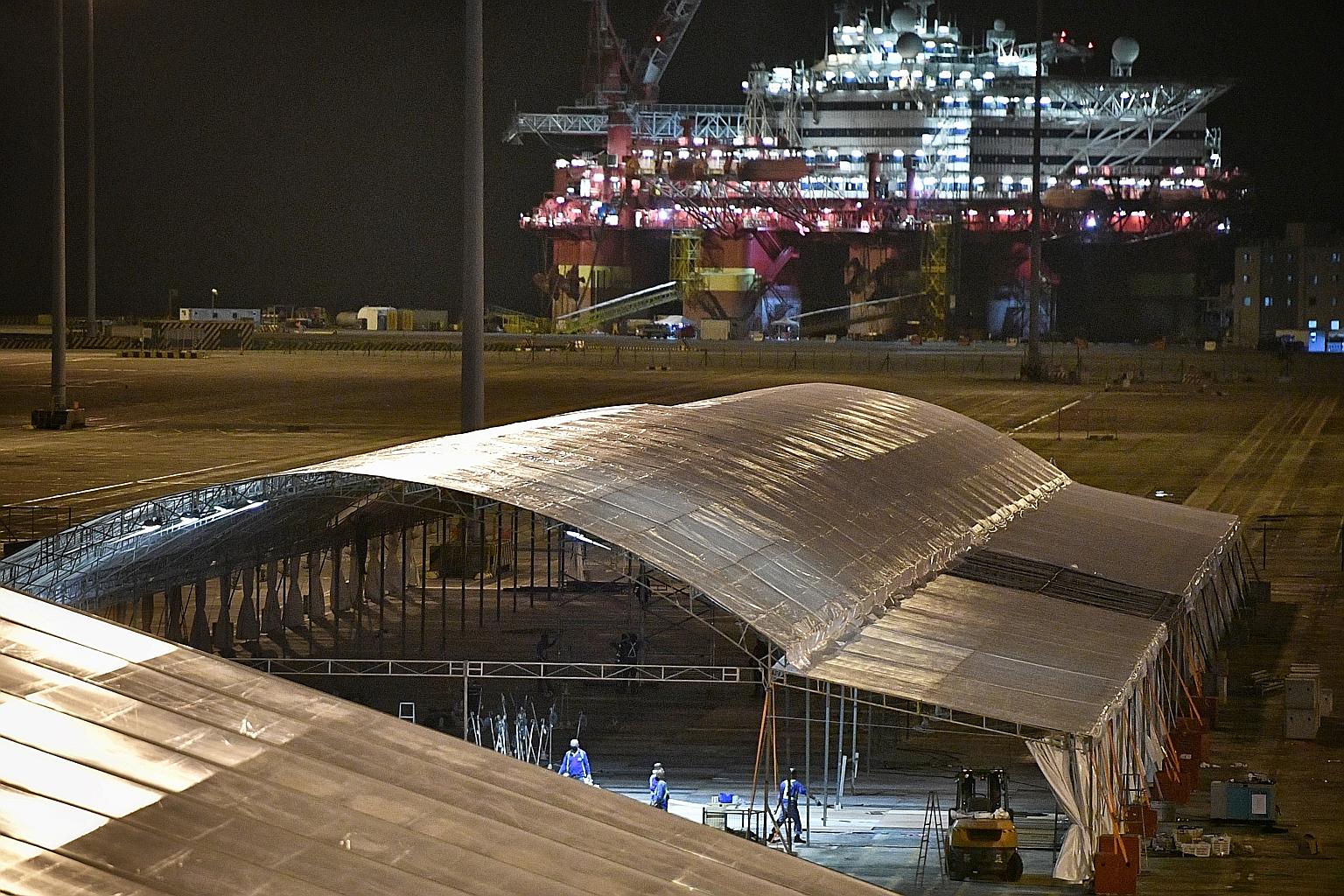Singapore ramps up facilities, manpower for coronavirus battle
Covid-19 bed capacity to more than double within months; more staff will come on board
Sign up now: Get ST's newsletters delivered to your inbox

Marquees being set up at a Tanjong Pagar Terminal site yesterday. By the end of June, Singapore aims to have some 41,000 beds for isolation and care, including at community care and recovery facilities.
ST PHOTO: ARIFFIN JAMAR
Follow topic:
Singapore will have far more capacity both inside and outside of hospitals to deal with Covid-19 patients, as it goes about ensuring that the healthcare system can meet the demands imposed on it by the outbreak.
Not only will the bed capacity to accommodate Covid-19 patients more than double within months, but intensive care unit facilities will be ramped up as well. More medical staff will also come on board to run these facilities as part of a wider strategy to counter the outbreak, the authorities said yesterday.
By the end of June, Singapore aims to have some 41,000 beds for isolation and care, including at community care and recovery facilities.
"We have created more than 18,000 bed spaces for isolation and care needs, with another 23,000 in the pipeline," said the Singapore Armed Forces' director of joint operations, Brigadier-General David Neo, at a media briefing yesterday.
Later, outlining Singapore's broad medical approach to the outbreak while speaking to the media, Health Minister Gan Kim Yong said that a range of facilities had been set up to meet the different needs of Covid-19 patients.
About 30 per cent of patients require closer medical observation because of underlying health conditions or old age. There is also a very small number who require ventilation support and care in the intensive care units, he said. These will be cared for.
But so far, most cases have had relatively mild or no symptoms and they do not require extensive medical intervention, Mr Gan said. They will be housed in community care facilities such as Singapore Expo, where they will be cared for by medical teams. The 10,000 bed spaces at such facilities will be doubled and new sites will be announced soon.
Meanwhile, studies have shown that patients who remain well on the 14th day of their illness are likely to remain stable, and such patients may be transferred to recovery facilities that do not need to have medical services, said Mr Gan. These facilities will also be expanded from the current 2,000 to more than 10,000 bed spaces.
The Health Ministry's director of medical services Kenneth Mak said these plans are being put in place to make sure that if the numbers continue to grow, there is enough capacity to look after patients.
A bump in numbers is expected as active screening among workers in essential services and seniors is stepped up.
Mr Gan said: "As we step up our screening and testing... we are likely to see more cases being detected which otherwise would not have been detected."
Other than increasing bed capacity, technology is being used to enhance outcomes, with medical kiosks and teleconsultations providing round-the-clock care in community care facilities.
To meet the need for manpower, said Mr Gan, 3,000 healthcare professionals have signed up under the SG Healthcare Corps initiative, which will be expanded to include more healthcare professionals and non-healthcare professionals.
Associate Professor Mak said: "This includes some from the private sector, and those who were previously in healthcare... who have now come back, taking on their previous roles."
Singapore confirmed an additional 528 Covid-19 cases yesterday, bringing the total to 14,951. A total of 1,689 patients are currently in hospital, with 21 in intensive care units, and 12,120 isolated and cared for at community facilities.

